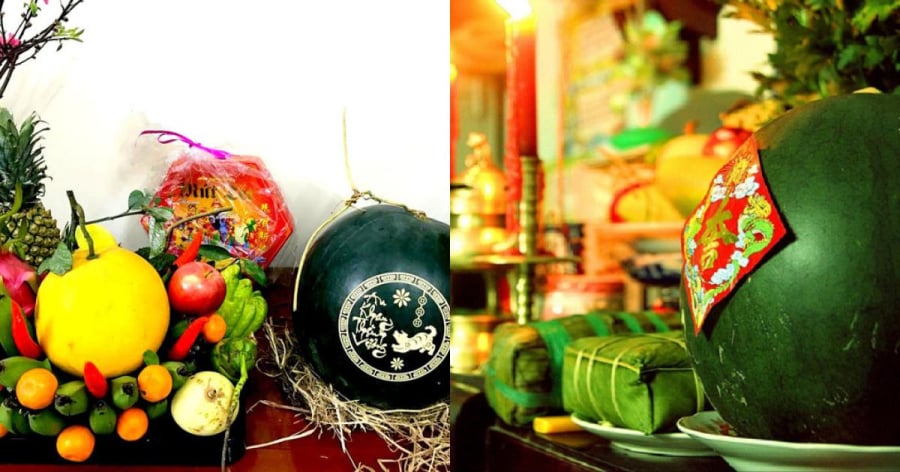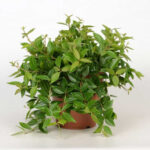Why Do Some People Avoid Placing Watermelon on Ancestral Altars?
Watermelon is one of those fruits that are rarely chosen for ancestral offerings. The main reason lies in the fact that watermelons grow on the ground from the time they sprout until they are harvested.
Moreover, when sold, watermelons are often piled on sidewalks or spread on mats in markets, which may cause them to absorb negative energies and impurities from people and the environment, especially from fertilizers and soil.

In contrast, ancestral altars are sacred spaces that need to be kept clean and pure to maintain a positive atmosphere for worship. As a result, many people opt for fruits that grow on higher branches, believing them to be purer.
However, there is another perspective to consider. The word for “watermelon” in Vietnamese sounds similar to the word for “abundance,” symbolizing prosperity and plenitude. The round shape, red flesh, and green rind also signify fulfillment and family reunion.
Additionally, watermelons are seen as symbols of wealth, prosperity, and good fortune. They represent self-reliance and resilience with their green rind and red flesh, and they also convey the descendants’ reverence for their ancestors.
Therefore, the decision to place watermelon on an ancestral altar depends on the beliefs of each family and varies across regions. If you choose to offer watermelon, keep the following in mind:
– Select watermelons of moderate size, appropriate for the altar. Especially for altars hung at a height, avoid choosing overly large fruits as they may be cumbersome for offerings and could cause damage to the altar.
– Opt for watermelons with a deep green rind and fresh stems. Refrain from choosing watermelons that have faded in color, have pale flesh, or are less sweet to ensure the best offering.
– Before placing it on the altar, wash the outer rind thoroughly and dry it to prevent dirt and water stains.
– When offering watermelon, do not leave it there for too long, as despite its tough-looking exterior, the fruit can spoil quickly in hot weather.
Fruits to Avoid for Ancestral Offerings

+ Artificial fruits: Using fake fruits is considered disrespectful to ancestors and deities. Opt for fresh fruits to demonstrate your reverence.
+ Sour, bitter, or spicy fruits: Fruits like bitter melon, chili peppers, or lemons are not suitable for offerings as they represent bitterness and life’s hardships.
+ Fruits that grow close to the ground: Fruits like cantaloupes and watermelons are more susceptible to soil and fertilizer contamination. Therefore, it is best to avoid offering these fruits on ancestral altars.
+ Fruits with strong odors: Fruits like jackfruit and durian have potent aromas that can overpower the delicate fragrances of other offerings. Maintaining a clean and airy worship space is essential, so it is advisable to refrain from using strongly scented fruits.
Title: Unlocking the Secrets of Fortune: The Significance of Planting Agave Plants at the Front Doorstep
The万年 tree is a resilient and long-living species, revered for its longevity and vigor by our ancestors. A true testament to nature’s strength, this majestic tree has stood the test of time and remains a beloved fixture in landscapes and gardens. With its vibrant presence, the 万年 tree adds a touch of ancient wisdom and beauty to any setting, captivating onlookers with its timeless elegance.





































